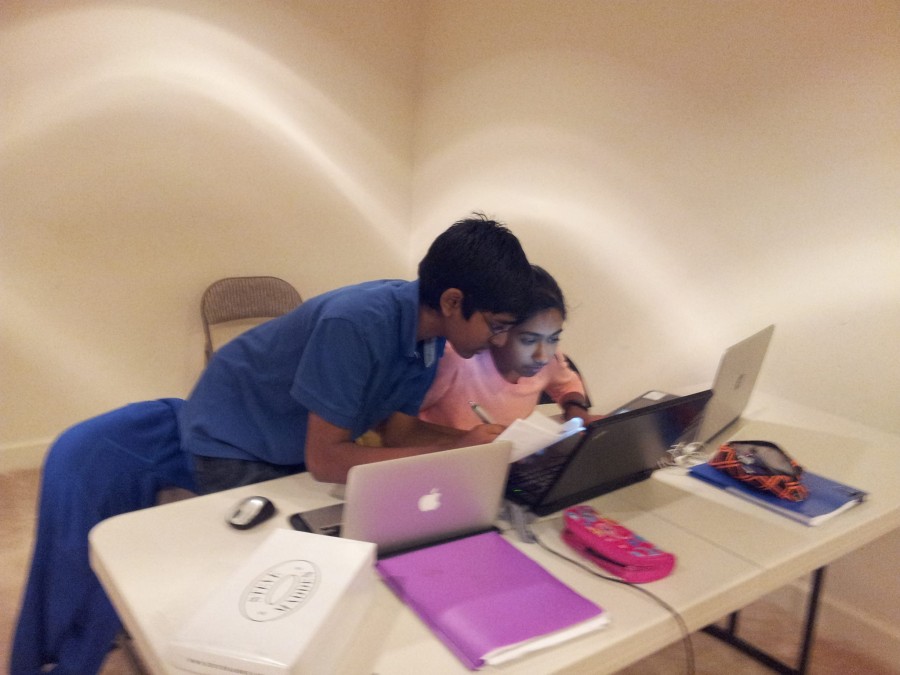Jefferson Participates in the Second Annual Virginia Tech High School Programming Contest
Freshmen Ritika Srivastav and Yash Shekar discuss previous Virginia Tech programming questions in preparation for the competition on Dec. 5.
December 21, 2015
Sixteen teams of students met in Weyanoke Trailer O with Stephen Rose, on Saturday, Dec. 5, to participate in the second annual Virginia Tech High School Programming Contest.
The Virginia Tech competition ran from 11:00 am to 3:00 pm and was preceded by opening remarks by the host, Dr. Godmar Back, through the WebEx software. The participants were anxious to start coding after their hard work and preparation.
“Before the competition I only knew Java, which I heard for competitions like this isn’t very efficient where the time to write and check the code is very limited and how long it takes for you to write the code matters, so I actually spent a day cramming Python the day before the competition,” freshman Hanna Xu said.
The competition consisted of eight coding problems, each with increasing difficulty. Such questions utilized knowledge from a variety of STEM fields, creating a challenging contest for participants. Regardless of the challenges they faced, the Jefferson teams managed to take the top three spots in the competition. The winning team, Intermediate Team 2, consisted of sophomores Mihir Patel, Jerry Huang, and Franklyn Wang. Intermediate teams 3 and 6 placed second and third respectively.
“I didn’t expect to win, because I knew there was a really strong team competing,” Wang said. “Our pivotal solve was on the fifth problem which was a physics based problem that we knew how to solve.”
Even though not all teams managed to overcome the challenges they faced, the competition provided a tactile learning environment that allowed participants to experience a new perspective to programming.
“[Programming] competitions are fun because generally when you want to hone in on problems you generally have to find problems and make your own, which is really redundant,” Xu said. “Also, I haven’t really coded with anyone else before, I have only coded solo, so the competition allowed me to work with other people.”






